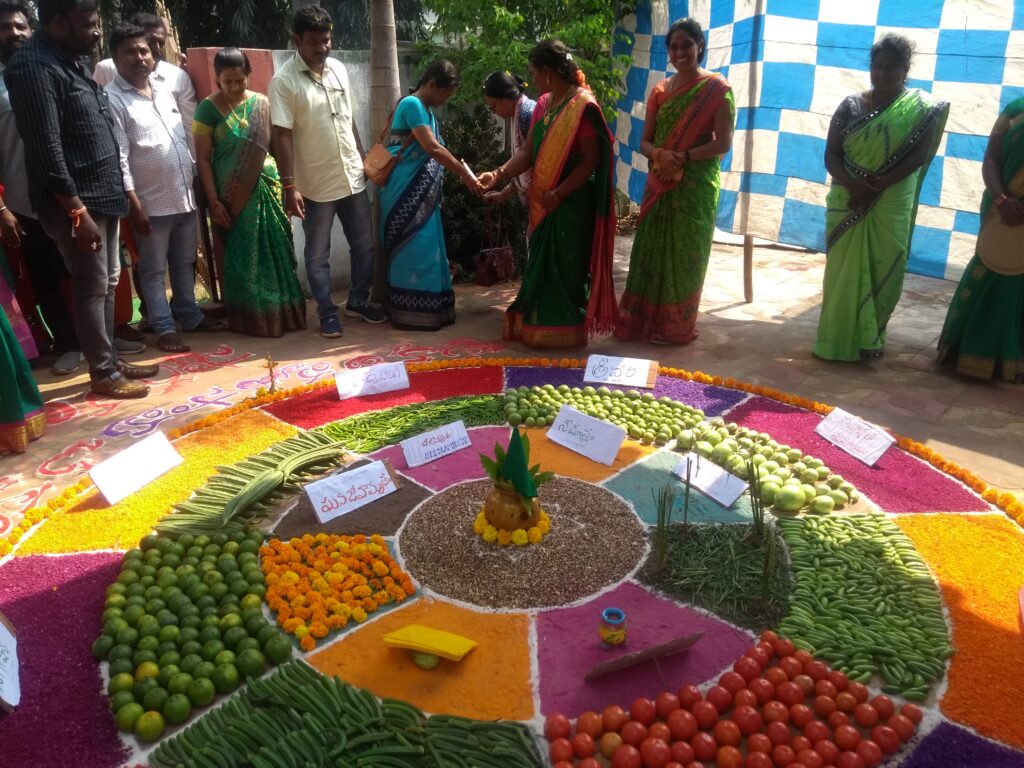In the media: Climate change lessons from Andhra Pradesh, Camden New Journal.

The state of Andhra Pradesh in India has seen a transformation to natural farming which has been made possible by women organizing, writes Solveig Francis.
They have created thousands of self-help organizations across more than 3,000 villages.
Since 2016 they have spearheaded an agricultural, economic and social transformation through Community Managed Natural Farming: agroecology based on no/low tilling, crop diversity, ground cover all year round, water conservation, using local seeds, and rejecting all chemical fertilisers and pesticides.
On our visit we learnt how this transformation is regenerating the soil and increasing wildlife; how women, their children and communities are much healthier from a nutritious varied diet without toxins; women’s incomes and social standing are up; domestic violence is reduced.

Landless women are central in this quiet revolution through a programme of kitchen gardens. These methods help reverse climate change by cooling the soil. Air above green cover is several degrees lower than over bare earth which chemical agriculture and other destructive industries allow on a massive scale.
One million farmers in Andhra Pradesh, mostly women, already practice natural farming, bringing along their menfolk.
Women are central in encouraging take up, aiming for all six million farmers and 200,000 landless farmworkers in the state to be natural farmers by 2031.
Women have won State backing. The state’s “farmers empowerment organization” is headed by Vijay Kumar, who recognizes women’s enormous contributions to humanity. The women farmer’s movement is developing “true cost accounting” to measure the social and economic benefits to the farmers, their families and the community generally. Examples are their health and the equity between women and men within the family which disregards the enormous costs of industrial farming to all life.
As Andhra Pradesh spreads the word of this farming method, the women who continue to develop it are asked to help bring natural farming to other farming communities in India and beyond, including African countries. And increasingly agroecology is also being taken up by urban food growers and gardeners here in Camden.
As city-dwellers we need to know more about how our food is grown and the best methods to protect our health, the soil and the environment.
At the Women’s Centre we see deep interest in these questions as we face the triple emergencies of climate change, ongoing ill-health and poverty. This movement of grassroots women in the Global South gives us hope. We can all learn and contribute.
My talk, presenting a colourful photo report based on the visit will be held at Swiss Cottage Library, July 20, at 6-8pm. All welcome.
The event is part of Camden Libraries’ South India Heritage Month.
For further details see: www.globalwomenstrike.net.
- Solveig Francis from the Crossroads Women Centre was one of the team co-ordinated by the Global Women’s Strike to visit Andhra Pradesh
